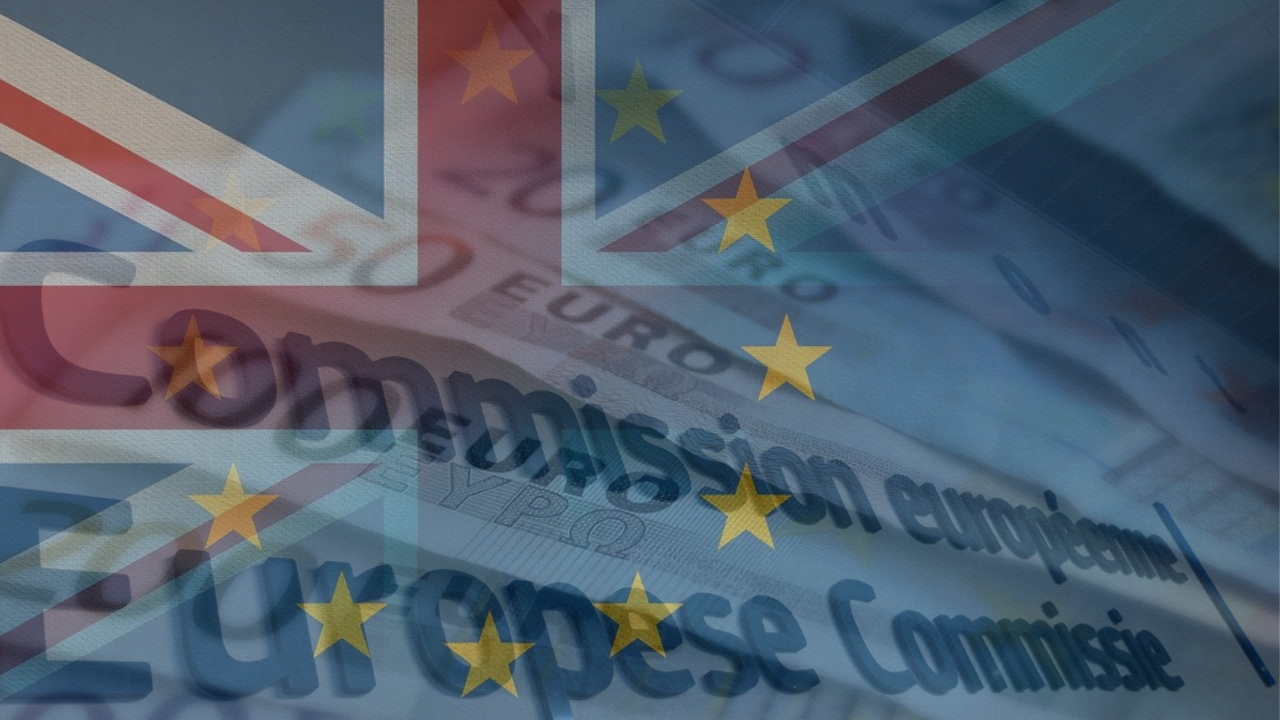New EU extra-territorial level playing field rules may adversely impact UK investment in the bloc
The European Union (EU) has introduced major new legislation which could have broad implications for extra-territorial jurisdiction over businesses based in any non-EU country including the UK. The Foreign Subsidies Regulation (FSR), which will apply from 12 June 2023, authorises the European Commission (the Commission) to investigate and deal with overseas businesses receiving public funding from third country governments while operating in the EU Single Market.
The purpose of the FSR is to eliminate foreign subsidies, referred to as “financial contributions” in the legislation, which are considered to distort competition in the EU. The new level playing field rules are mainly expected to target China’s state aid programs subsidising Chinese firms operating in the EU, in addition to upcoming US subsidies earmarked for American businesses under the US$430 billion Inflation Reduction Act.
Even so, there are risks that UK businesses may fall foul of its provisions given the substantial level of UK corporate investment in the EU. This currently stands at a cumulative £600 billion. It has continued to expand rapidly due, in large part, to UK companies setting up subsidiaries in the EU to mitigate the loss of full access to the Single Market since Brexit.
Broad application of the FSR
The FSR covers large-scale mergers and acquisitions of EU companies and large EU public tenders. It also empowers the Commission with extensive authority to institute ex-officio investigations in any other situations resulting in a distortion of the EU internal market.
In so doing, the FSR adopts a wide-ranging definition of “financial contributions” that could lead to distorting subsidies. These include any benefits provided by government or any public body. Such benefits can cover a government transfer of funds (or liabilities) such as capital injections, direct grants, tax breaks or incentives, loans, interest concessions on loans, debt guarantees, public funded R&D, and government contracts irrespective of size. Moreover, these benefits do not need to be associated with a business’s operations in the EU.
Onerous reporting requirements
UK businesses will be required to comply with reporting requirements in relation to their EU operations.
Businesses will need to notify the Commission of any subsidy received from UK public sources as buyers of an EU company or any other undertaking including other business groups, referred to as concentrations in the legislation, arising from mergers or joint ventures. This reporting requirement would be triggered where a business has an EU revenue of not less than €500 million or received a foreign financial contribution of at least €50 million.
Similarly, a UK business would be required to notify the Commission of its participation in a public tender where the procurement value is at least €250 million or receives a minimum overseas financial contribution of €4 million. This may make bids for EU public tenders by a UK business less competitive, since a possible Commission investigation may induce the contracting authority to select an EU-based supplier as a more convenient alternative.
Lastly, the Commission may request ad hoc notifications in relation to smaller-value concentrations or public tenders in situations where it launches on its own initiative an investigation of any other market situations. This includes circumstances where it suspects a business received a financial contribution in the three years prior to purchases in a concentration or bidding in a public tender.
While the Commission is undertaking an investigation, any concentration or public procurement which has been notified by a UK business, cannot be completed or awarded, respectively. The Commission can impose a fine up to 10% of the annual aggregate EU turnover of a business or 1% of global turnover for failing to provide the required notifications.
A Commission draft Implementing Regulation, issued in early February 2023, provides further details on how notifications should operate in practice. These include notifying procedures and notification contents applicable to concentrations and public tenders.
The Commission’s extensive investigative powers
The FSR provides the Commission with extensive investigative authority to collect information from a UK business. This includes making requests for information, interviews of the business and individuals working for it, launching investigations both within the EU and in the UK, as well as initiating investigations into specific industrial sectors or forms of subsidy. The Commission can also utilise market information supplied by third parties in relation to a UK business falling under an investigation. Sources of information can include a UK business’s competitors or EU member governments in relation to subsidies provided to the business being investigated.
Notably, should the Commission not receive the information it has requested from a UK business, it could arrive at a decision based on the facts at hand – an outcome which could prove less favourable to the business than if it had provided the information that was requested.
Following an investigation the Commission could determine a non-objection decision to the subsidy, alternatively it could pass a decision to prohibit a concentration or not to award a public tender.
In cases where the Commission finds that a subsidy was provided and which led to a distortion of the Single Market, it could still permit the subsidy dependant on a balance of positive and negative effects arising out of the subsidy. For instance, a subsidy could be granted subject to a positive finding based on the attainment of certain EU policy objectives such as environmental improvement, employment creation, R&D promotion etc.
On the other hand, should the negative effect be more prominent, then the Commission would apply structural redressive measures or otherwise accept commitments by a business including divestment of assets, reduction of market presence or capacity, or exiting an acquisition. Non-structural measures could involve the business repaying the subsidy with interest, providing access to relevant licensed infrastructure or providing open information on its R&D, among other governance changes.
In terms of timelines for concentrations or pubic tenders requiring notification, the Commission is empowered to look into subsidies that were provided three years before the transactions took place, although the three years cannot be backdated to before the FSR’s application on 12 July 2023. As for other market situations, the Commission can investigate subsidies going back ten years where the subsidies distort the EU internal market, once again with no backdating to before the start of the FSR’s application date.
New UK subsidy control regime to mitigate FSR application
Since Brexit, the UK has been subject to subsidy control set out in the UK-EU Trade and Cooperation Agreement (TCA). On the UK side, this was recently replaced by domestic legislation in respect of the Subsidy Control Act 2022 (SCA).
The TCA’s State aid terms enabled the UK to design its own regulatory system on the condition it would accord with its international commitments on State aid, including with the TCA. For this purpose, the SCA incorporates similar principles to those contained in EU State aid law. As a result, only a few UK companies are anticipated to fall under the FSR’s scope.
Although there are several significant differences between UK and EU State aid measures arising from the SCA, nevertheless the new UK rules go beyond the requirements of the TCA to implement higher standards. This is particularly in relation to the inclusion of several additional principles governing the environment and clean energy which do not exist within EU State aid. There are also operational differences in the powers exercised by the relevant UK regulatory body, relative to the Commission.
In practical terms, concerns have been raised as to whether UK businesses could fall foul of the FSR as beneficiaries of recent elevated government support programs in the form of energy bill discounts, funding packages for clean energy development and tax breaks at UK freeports.
Certainly, on the political level, the UK government has proclaimed the SCA to be a “clear departure” from the EU’s State aid rules, promoting “key domestic priorities, such as levelling up economic growth across the UK and driving our green industrial revolution”, albeit “without facing burdensome red tape”. To what extent political rhetoric and ballooning government funding for UK business amounts to substantive differences between UK and EU State aid regimes, only time will tell.
Future UK-EU free trade agreement (FTA) as FSR alternative
Another legal platform to limit the FSR’s impact over time could be any relevant bilateral commitments on State aid negotiated in a more comprehensive future trade deal between the UK and EU than currently exists under the TCA. The Commission has stated that if any FSR investigation determines the existence of a distortive subsidy involving a partner country with which the EU has concluded an FTA, it may be “more appropriate to address the distortion under the dispute settlement or consultation provisions” of that deal.
Under this scenario, it is possible that where the FSR’s unilateral redressive measures were invoked, they would be suspended while any bilateral discussions took place within the framework of the FTA.
Although it is unlikely that any future UK-EU FTA would completely remove UK businesses from the FSR’s scope, any of its penalties or other measures may still be limited by the hypothetical deal’s mutual commitments on government subsidies in addition to its dispute resolution measures.
Conclusion
There is a relatively short time-scale for UK businesses to prepare for the EU’s extra-territorial subsidy control rules. In this regard, the FSR will become applicable from 12 July 2023, while the requirement to submit notifications will be effective from 12 October 2023.
UK businesses already operating in the EU should therefore prepare quickly for the launch of the FSR. This would include establishing extensive reporting and administrative requirements and the provision of relevant data which may be required for early provision to the EU authorities. Likewise, businesses should consider setting up procedures for rigorous and comprehensive information collection in other areas which could fall under the Commission’s scrutiny including transfer pricing, government-sourced benefits and relations, intercompany cost allocation and so on.
Certainly, businesses should review the extent to which their previous and future financial contributions from public sources could fall under the scope of the FSR. This would be especially relevant for UK businesses already involved in EU mergers, acquisitions and joint venture, as well as public tenders, in addition to other market situations.






Leave A Comment